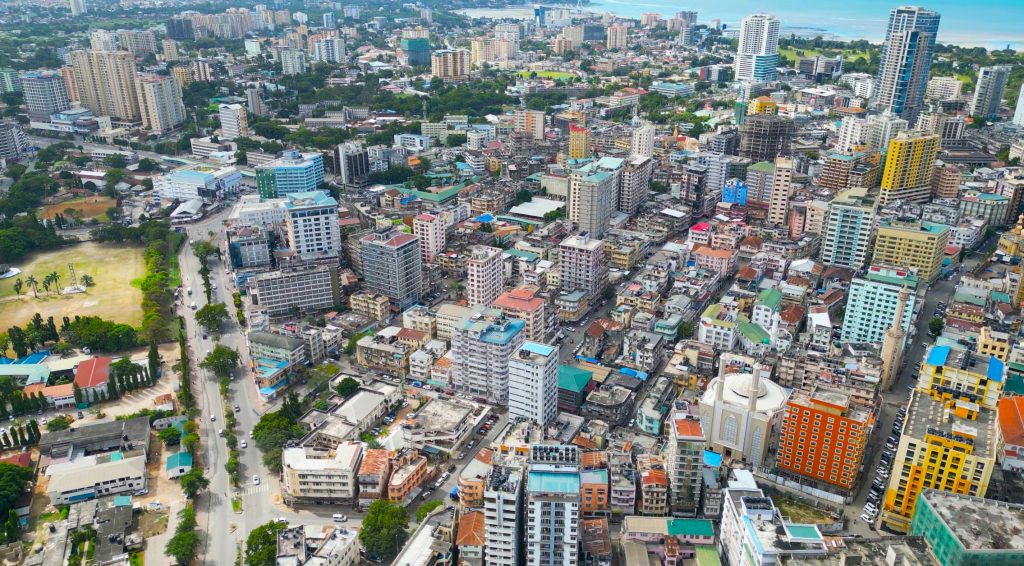In this comprehensive exploration, we delve into the profound impact of rapid urbanization on Tanzania’s economic future. The nation’s landscape is undergoing an unprecedented transformation as once-sleepy villages evolve into bustling metropolises. The emergence of new business opportunities alongside these dynamic changes presents challenges and opportunities for the nation’s economic prosperity.
Tanzania has witnessed a significant wave of rural-to-urban migration in recent years, with towns like Katoro in the Geita Region, Babati in Manyara, and Njombe experiencing rapid growth. People are drawn to these cities, seeking improved living conditions and economic prospects. While this migration challenges rural communities, it also sparks economic growth and development in urban areas.
However, this trend has led to a concerning issue – the retention of young graduates in urban centers. As talented and educated individuals opt to remain in cities, rural areas suffer a “brain drain,” where they lose skilled workers who could contribute to local development. This phenomenon further widens the gap between urban and rural development, exacerbating remote communities’ challenges.
The Challenge of Rural-Urban Migration
The allure of urban life is undeniable, and the reasons behind rural-urban migration are multifaceted. In cities like Katoro, the mining industry provides lucrative job opportunities, attracting young graduates with promises of better salaries and career growth. Similarly, Babati’s proximity to the Serengeti National Park fosters growth in the tourism sector, offering young professionals a chance to work in an internationally acclaimed destination.
Njombe, known for its agricultural potential, faces challenges as agriculture alone may not offer the same economic prospects as urban industries. As a result, young people seeking diverse career opportunities often gravitate towards cities. These cities, including Dar es Salaam, have evolved to become significant economic hubs compared to other African cities.
Dar es Salaam, the largest city in Tanzania, stands out as a bustling metropolis that plays a crucial role in shaping the nation’s economic future. Its strategic location along the Indian Ocean coast has facilitated international trade and commerce. The city’s port is vital for Tanzania and serves as a gateway for landlocked countries, further enhancing its economic significance.
It reveals its growth trajectory by comparing Dar es Salaam to other African cities, such as Lagos in Nigeria, Nairobi in Kenya, and Johannesburg in South Africa. While all these cities have experienced rapid urban development, Dar es Salaam’s economic growth has been steadily rising, positioning it as one of the major commercial centers in East Africa.
Urban Growth and Slums: Rapid urbanization presents opportunities for economic growth but poses significant challenges, particularly when cities experience unplanned expansion. The lack of comprehensive urban planning and inadequate infrastructure leads to slums characterized by informal settlements and poor living conditions.
In Babati, for instance, the influx of people searching for employment and better living standards has resulted in unplanned settlements around the city’s outskirts. These slums lack access to essential services, such as clean water, sanitation facilities, and proper housing, which ultimately impact the health and well-being of the residents.
Similarly, Njombe faces similar challenges, as the city’s rapid growth has outpaced the capacity of local authorities to provide adequate infrastructure and services. Consequently, informal settlements have sprung up, leading to environmental degradation, sanitation issues, and social inequality.
Dar es Salaam, too, has grappled with challenges related to unplanned urban growth, leading to the emergence of informal settlements. The lack of affordable housing options and inadequate infrastructure in some areas of the city has resulted in the proliferation of slums, hindering the city’s overall sustainable development.
Striving for Equitable Development
Addressing the challenges of rapid urban growth requires a multifaceted approach. The government and stakeholders must prioritize inclusive planning and sustainable policies that promote equitable development across rural and urban areas.
One solution is to develop secondary towns and cities, like Babati and Njombe, to create regional economic hubs. This approach would decentralize development, providing opportunities for young graduates to find meaningful employment and contribute to the growth of their regions.
In Dar es Salaam, the government is actively working to improve urban planning and infrastructure development. Initiatives such as the National Development Vision 2025 and the Dar es Salaam Metropolitan Development Project aim to enhance the city’s resilience, improve public services, and foster sustainable economic growth.
Tanzania’s rapid urbanization reshapes the nation’s economic future in diverse and dynamic ways. While the growth of towns like Katoro in the Geita Region, Babati in Manyara, and Njombe presents opportunities for economic expansion and job creation, it also poses challenges related to rural-urban migration and unplanned urban growth.
Dar es Salaam stands at the forefront of this transformation, emerging as a significant economic hub compared to other African cities. However, it also faces challenges associated with rapid urbanization, including the growth of slums and inadequate infrastructure. Striking a balance between urban and rural development is critical for achieving equitable economic growth and sustainable prosperity.
By investing in comprehensive urban planning, infrastructure development, and policies that empower both urban and rural areas, Tanzania can harness the city effect for the more significant benefit of all its citizens. Tanzania can only unlock its full economic potential through a coordinated and inclusive approach while ensuring that no region is left behind in the march towards progress. By embracing the challenges and opportunities that rapid urban development brings, Tanzania can forge a path toward a prosperous and thriving economic future for all its people.

